Scraping Google Flights, Booking.com & Airbnb Data
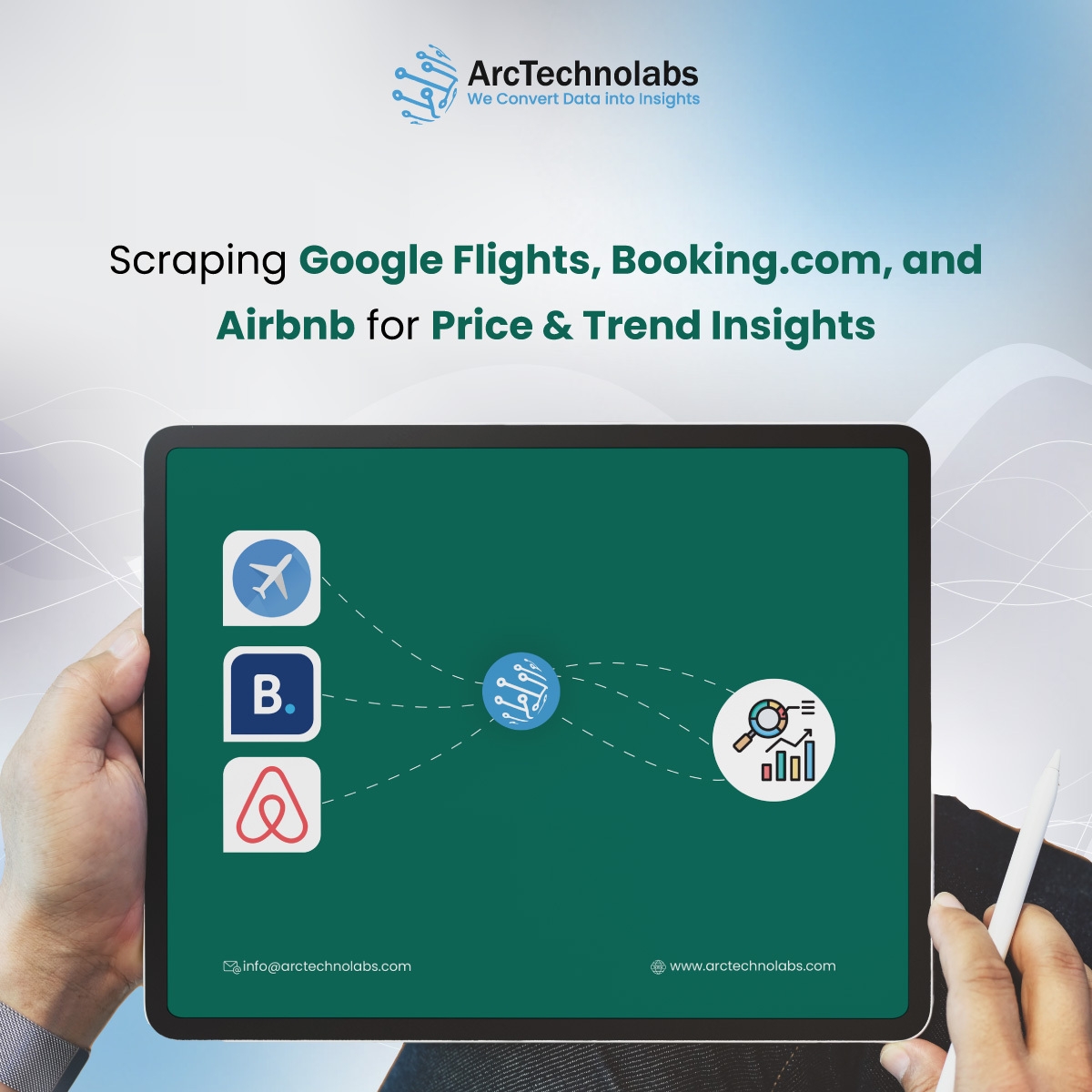
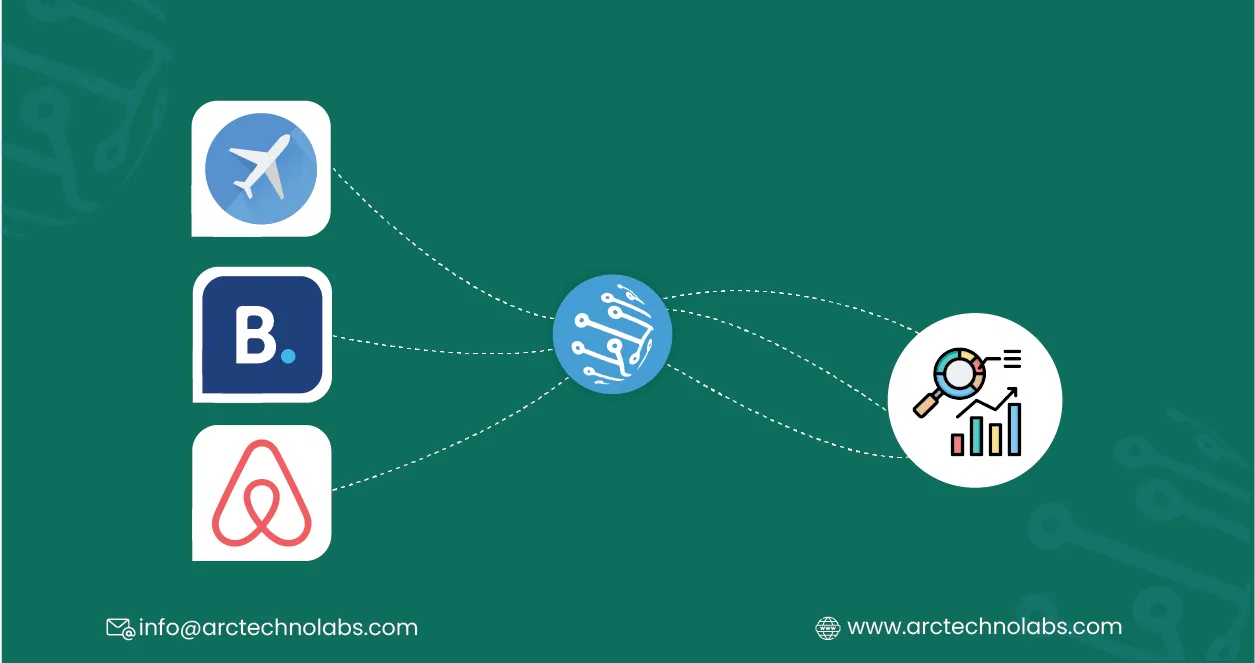
Introduction
In today’s data-driven travel industry, real-time pricing and trend insights are key to unlocking a competitive advantage. Travelers want to score the best deals, while businesses aim to optimize offerings and enhance customer satisfaction. To gain accurate market intelligence, Scraping Google Flights, Booking.com, and Airbnb for Price insights is becoming a strategic necessity.
This blog explores how travel platforms like Google Flights, Booking.com, and Airbnb serve as goldmines of dynamic data and how extracting and analyzing that data can drive smarter decisions for travel agents, hospitality providers, price monitoring platforms, and researchers.
Why Scrape Travel Websites?

In the fast-paced and dynamic world of online travel, pricing and availability change by the minute. Online Travel Agencies (OTAs) and aggregator platforms such as Expedia, Booking.com, and Airbnb constantly update listings based on real-time demand, room availability, seasonality, and competitive pricing. For travel businesses, manual tracking of this ever-changing data is both inefficient and impractical—especially when dealing with thousands of listings across multiple platforms and geographies.
This is where travel website scraping becomes a game-changer.
Web scraping automates the extraction of crucial data such as pricing, availability status, user reviews, star ratings, and property features. This automation enables travel businesses, revenue managers, and data analysts to gain timely, consistent insights without human intervention. One of the most important advantages is the ability to track competitor pricing in real time, allowing companies to adjust their rates dynamically to stay competitive.
Additionally, scraping helps identify seasonal and location-specific pricing trends, helping businesses plan better during peak travel seasons. Travel companies can also monitor supply-demand fluctuations, such as low room availability during holidays or sudden demand spikes due to local events.
Another benefit is detecting last-minute deals or surge pricing, which can inform targeted promotions or marketing campaigns. Over time, this data can be leveraged to build predictive pricing models, enabling businesses to optimize rates proactively rather than reactively.
The insights drawn from scraped travel data empower businesses to enhance booking rates, offer competitive prices, and improve overall customer satisfaction. Whether you are a hotel chain, travel agency, or pricing intelligence firm, automated data scraping from travel websites equips you with the actionable intelligence needed to thrive in a data-driven travel ecosystem.
Scraping Google Flights for Travel Price Insights
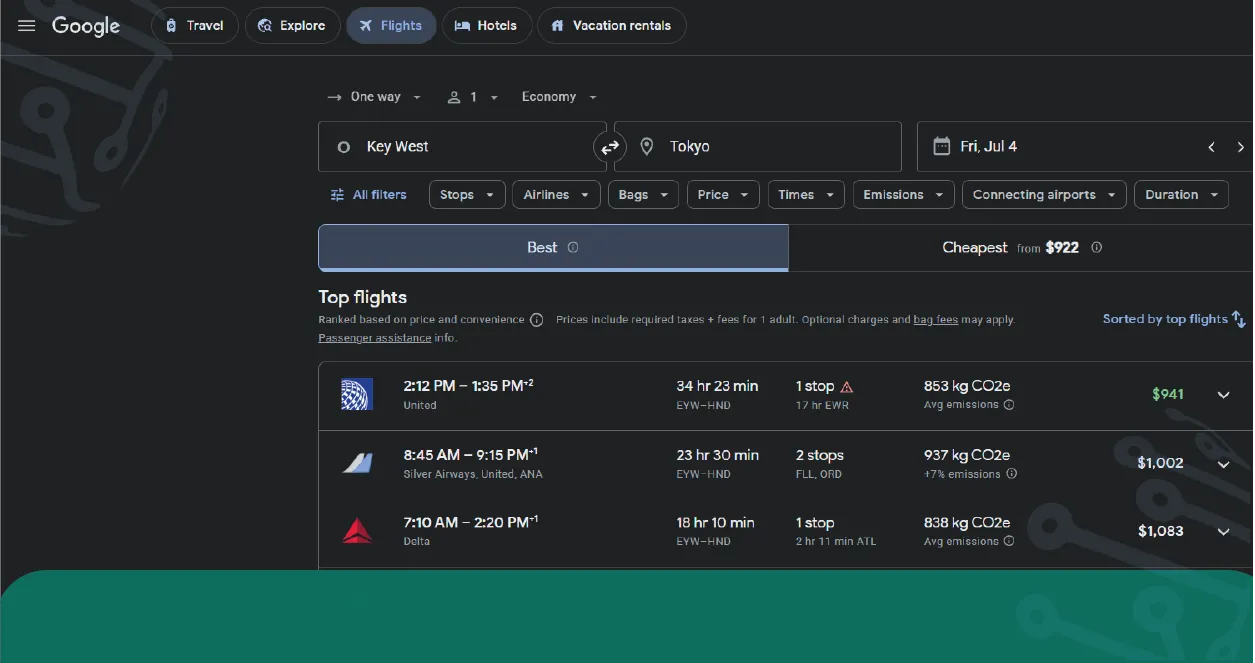
Scraping Google Flights for travel price insights offers tremendous value for the airline industry, travel bloggers, online agencies, and meta-search platforms. Google Flights aggregates flight data from hundreds of carriers and presents it with powerful filters and rich pricing visuals. However, manually tracking these updates is inefficient—especially when prices shift frequently due to demand, promotions, or route changes.
With automated scraping, it becomes possible to collect structured data like prices, flight durations, stopovers, airline names, and even baggage policies in real time. Businesses and researchers can extract prices based on destination and time window, which is crucial for spotting pricing variations across different travel periods. This data helps identify the most budget-friendly days to fly or understand fare differences by route.
One major benefit is capturing historical flight prices for trend analysis, which allows analysts to examine how ticket prices fluctuate over time. Scraping also enables the evaluation of carrier-specific pricing models, shedding light on how budget carriers differ from premium airlines in their pricing behavior, route-based fare variations, and pricing responsiveness to external events.
Travel planners and developers can also extract data for date-based fare calendars, helping build dynamic tools that recommend the best times to book. For platforms offering price alerts or predictive airfare models, this data acts as the backbone for automation and user engagement.
Whether the goal is to compare peak season vs. off-season fare shifts or track specific airline pricing over a longer period, scraping Google Flights provides the insight needed to make better-informed travel decisions. When combined with data from Booking.com and Airbnb, companies can develop unified dashboards for pricing strategy, forecast demand surges, and deliver enhanced customer experiences. Scraping Google Flights, Booking.com, and Airbnb for price information is essential in today’s data-driven travel economy.
Booking.com Scraping for Hotel Pricing Trends
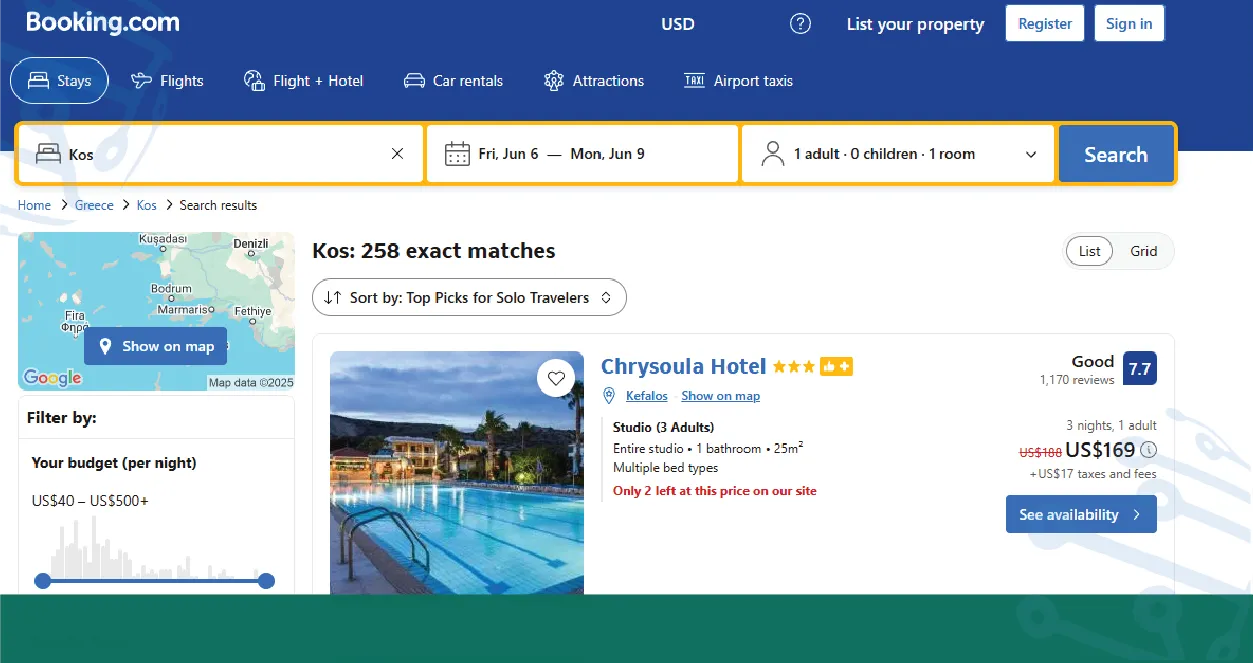
Scrape Booking.com for hotel pricing trends to unlock powerful insights into the global lodging market. With millions of listings updated daily, Booking.com reflects real-time shifts in local demand, events, guest preferences, and promotional strategies. This makes it one of the most valuable platforms for gaining visibility into competitive hotel pricing and booking dynamics.
By implementing automated web scraping techniques, businesses can gather detailed data such as room rates by star rating and amenities, enabling them to compare pricing across different hotel categories. For instance, hotels can analyze how 3-star properties with similar amenities price their rooms compared to 4-star ones in the same area. This insight is critical for positioning and pricing decisions.
Additionally, scraping helps identify seasonal pricing variations, highlighting how rates shift during festivals, holidays, or off-peak seasons. This supports revenue managers in planning optimal rates throughout the year. Extracting data on cancellation policies and discount offers reveals how flexible pricing and policies impact booking trends—key for improving conversion rates.
A particularly insightful angle is analyzing review counts and ratings correlations with pricing. By linking guest feedback with price levels, hoteliers can adjust their offerings or marketing strategies to boost perceived value and justify price points.
With this granular data, businesses can benchmark against competition, refine dynamic pricing models, and accurately forecast booking demand. Marketers can leverage this information for affiliate marketing, launching targeted ad campaigns based on real-time pricing trends and traveler behavior.
Web Scraping Booking.com Travel Data is especially useful for developers creating hotel comparison engines, tourism boards seeking localized travel intelligence, and platforms offering personalized lodging recommendations. In a price-sensitive, review-driven market, Booking.com scraping enables smarter strategies and more responsive travel products for every segment of the industry.
Extracting Airbnb Price Data for Rental Analysis
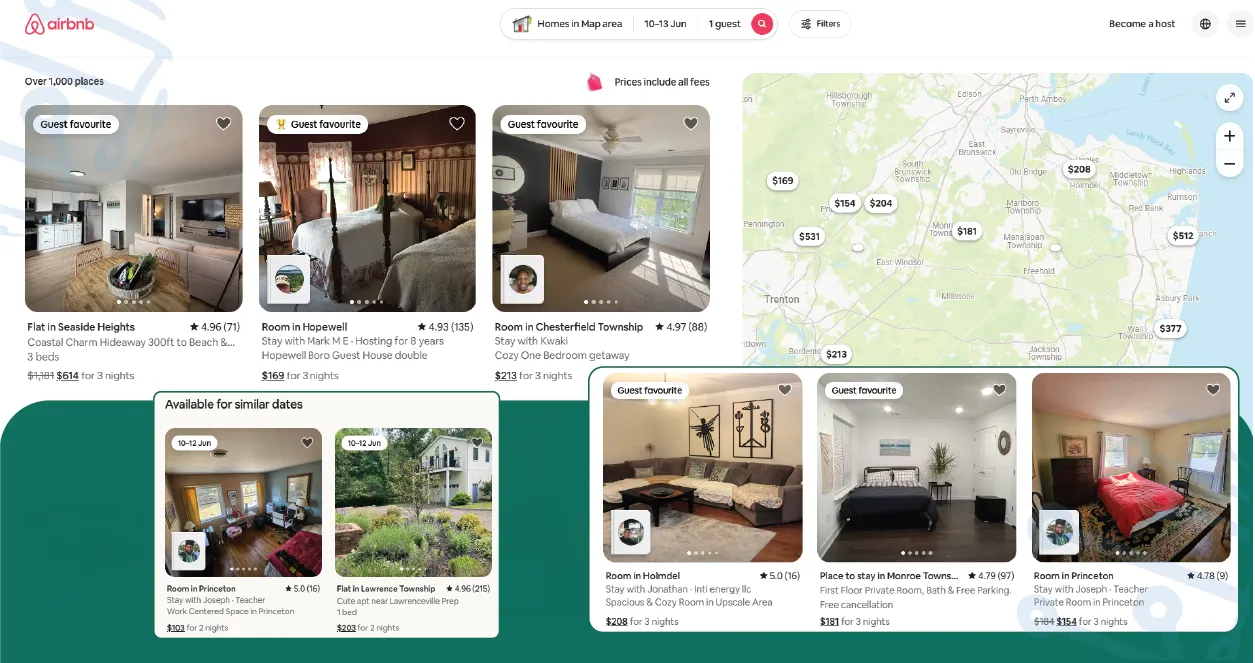
Short-term rentals have become a cornerstone of modern travel, offering flexibility and variety beyond traditional hotels. To stay competitive and data-informed, businesses and analysts often extract Airbnb price data for rental analysis, enabling deep exploration into pricing trends across diverse property types, geographic locations, and seasonal shifts.
Airbnb listings are highly dynamic—impacted by host preferences, local events, city-specific regulations, and evolving traveler demand. By scraping Airbnb, stakeholders gain access to a wealth of insights that traditional market reports often miss. For example, extracting per-night rates by property size and type allows for benchmarking between private rooms, entire homes, or boutique rentals, helping property managers identify optimal pricing strategies.
Scraped data also reveals minimum and maximum stay requirements, which are often used by hosts to control occupancy turnover or align with local laws. This information is especially valuable for vacation rental platforms and consultants aiming to build competitive booking policies.
Moreover, analyzing availability patterns can help forecast high-demand periods or spot underperforming listings. Comparing Superhost vs. regular host pricing differences offers another layer of strategic intelligence, illustrating how reputation and responsiveness influence rate premiums.
>Web Scraping Airbnb Travel Data empowers vacation rental managers, real estate investors, and tourism researchers with granular pricing models and local demand insights. Whether the goal is to determine the most profitable neighborhoods for new listings or understand how local festivals affect booking windows, Airbnb data plays a critical role.
When combined with review scraping, Airbnb's rich dataset enables powerful customer sentiment analysis, linking guest satisfaction to pricing and host performance. This comprehensive view helps businesses refine their offerings, boost occupancy rates, and craft superior guest experiences.
In a competitive travel economy, extracting Airbnb price data for rental analysis is essential for making smart, data-backed property decisions.
Building Travel Price Review Datasets
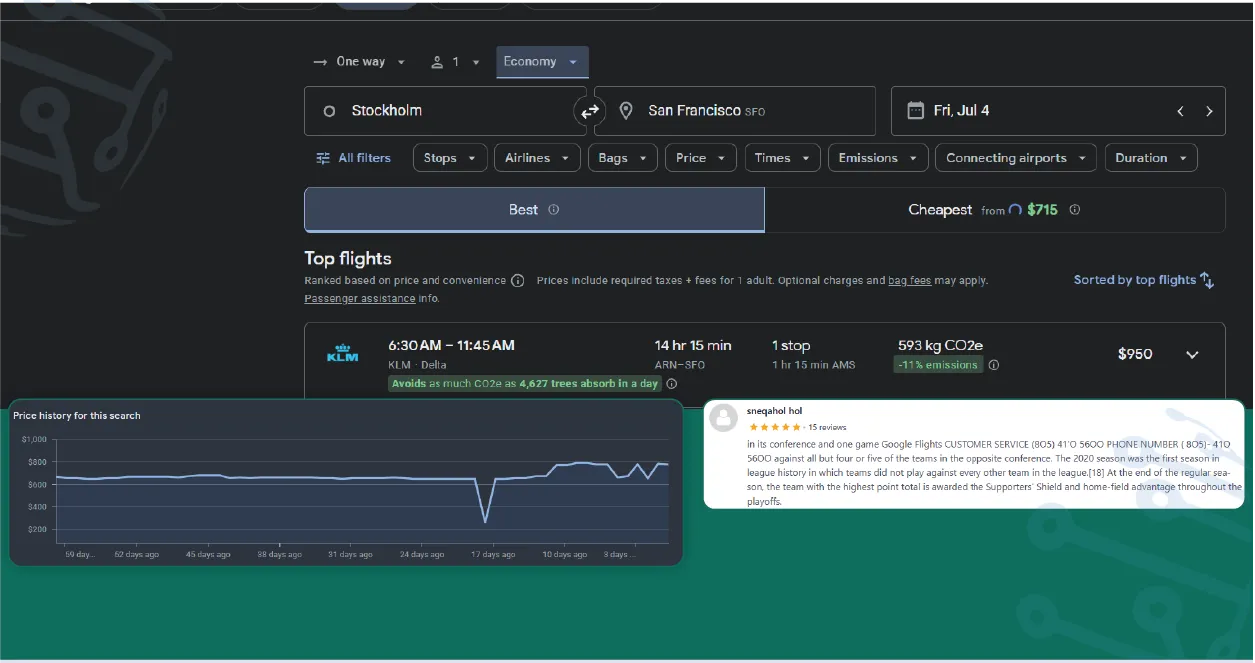
In the data-driven travel industry, Travel Price Review Datasets have become essential tools for businesses, developers, and researchers. These curated collections of scraped data consolidate pricing, booking behavior, and customer feedback from multiple platforms like Google Flights, Booking.com, and Airbnb. By integrating this information, companies can generate actionable intelligence for decision-making, automation, and customer engagement.
A well-structured Travel Price Review Dataset typically includes historical pricing by date, location, and platform, giving insight into how rates change over time and vary across regions. This temporal data is critical for identifying patterns and anomalies—helping in planning and forecasting.
Equally important is booking behavior, such as average length of stay, booking lead times, and cancellation trends. These indicators provide context to pricing fluctuations and help travel businesses understand user intent and travel planning habits.
Another layer of value comes from review scores and frequency, which can be correlated with pricing and occupancy rates. High review frequency often indicates popularity, while ratings provide sentiment indicators. Incorporating discounts, deals, and flash sales gives businesses a view into the promotional strategies used to fill occupancy gaps or counter seasonal slumps.
With these datasets, businesses can build AI-driven travel recommendation engines that offer smarter, personalized travel options based on user preferences and market trends. Marketers can optimize campaigns by timing them around price dips, ensuring higher conversion rates. Revenue managers and developers can also design dynamic pricing algorithms that respond in real time to market conditions, driving higher profitability.
Whether you're building a SaaS analytics dashboard, launching a new travel product, or conducting academic research, Travel Price Review Datasets provide the statistical depth and breadth needed to extract high-value insights, enhance forecasting accuracy, and innovate travel tech solutions.
How Travel Businesses Use Scraped Data?
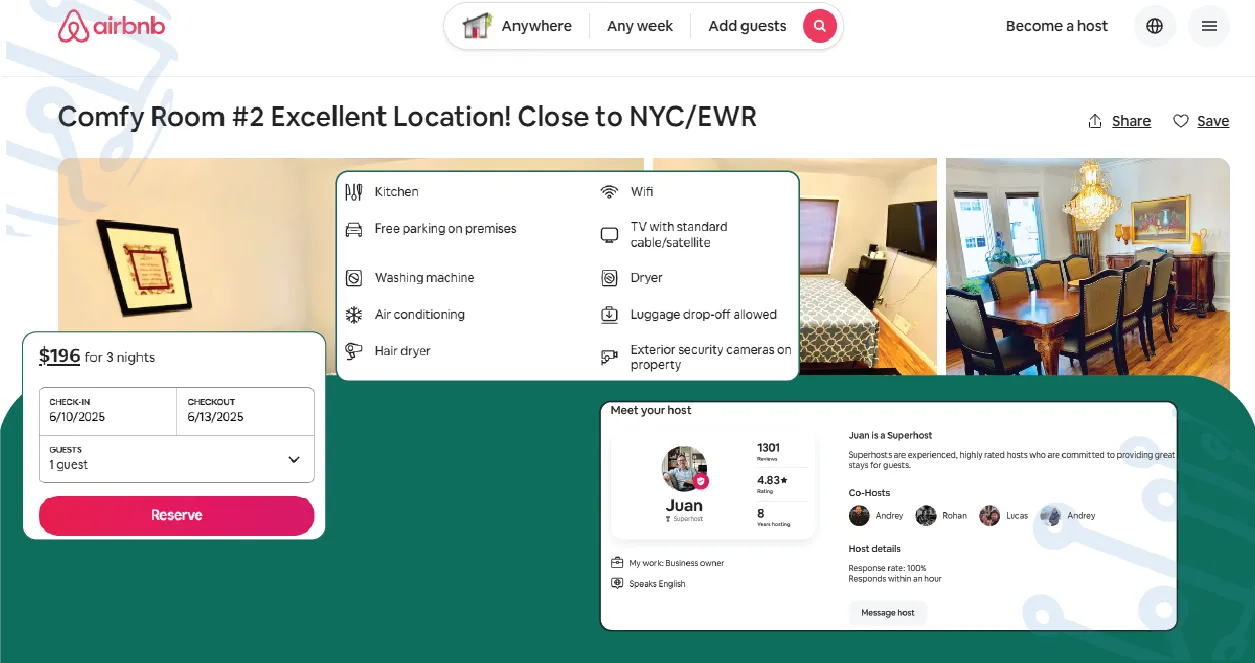
In today’s fast-moving travel ecosystem, scraped data has become a strategic asset that empowers decision-making, enhances customer experience, and boosts profitability. Travel businesses across the value chain use web scraping to capture real-time pricing, availability, and customer sentiment from platforms like Google Flights, Booking.com, Airbnb, and more. This data fuels a wide range of applications tailored to different stakeholders.
Travel Agencies leverage scraped pricing data to power real-time deal alerts, personalized travel packages, and competitive fare displays. By automating data collection, agencies improve booking conversions and maintain pricing transparency for customers.
Hospitality Chains use data scraping to benchmark their rates against OTAs and competitors. By comparing pricing for similar properties in the same location, hoteliers can fine-tune their dynamic pricing strategies, boost occupancy rates, and respond to market demand in real time.
Airfare Aggregators rely heavily on scraped data to display the best fares across multiple airlines, while also using historical trends to predict future pricing fluctuations. This ensures that users find the most affordable options quickly, improving loyalty and engagement.
Market Researchers scrape travel data to analyze industry trends, track seasonal and geographic shifts in tourism, and identify emerging travel destinations. These insights support strategic planning and product development.
Investors monitor Airbnb and hotel prices over time to evaluate tourism growth, determine property investment potential, and identify high-performing rental markets.
The increasing reliance on Travel Data Scraping Services shows just how mission-critical pricing and listing data has become across every segment of the travel industry. Whether for pricing intelligence, predictive modeling, or market research, scraped travel data is the foundation for smarter, faster, and more responsive decision-making in a highly competitive global market.
Web Scraping Technology for Travel Sites

In the dynamic and competitive world of online travel, acquiring accurate, real-time pricing and availability data is essential. Web Scraping Technology for Travel Sites must be robust, scalable, and adaptive to frequent website structure changes and anti-bot defenses. At ArcTechnolabs, we deliver high-performance Web Scraping Services that harness a modern tech stack tailored to the unique challenges of the travel industry.
Our infrastructure integrates advanced proxy networks to simulate organic traffic and ensure seamless access across global websites. Through IP rotation, we avoid rate limiting and blocking, enabling the continuous extraction of pricing, listing, and review data. For platforms with strong bot detection mechanisms, we deploy headless browsers and CAPTCHA-solving tools that mimic real user behavior, bypassing common scraping roadblocks.
To ensure timely and automated monitoring, we configure scheduled crawlers that run at defined intervals—ideal for capturing flash deals, fare changes, and availability shifts in real time. Additionally, our solutions are enhanced with AI-powered pattern recognition and AI-based data labeling, which help deliver clean, structured outputs even when HTML layouts evolve.
For mobile-first travel platforms, we offer specialized Mobile App Scraping Services capable of extracting data from Android and iOS-based travel apps. This includes capturing exclusive in-app promotions, early-access booking windows, and personalized pricing that often goes unseen on desktop versions.
Developers and data teams can also integrate our Web Scraping API Services to automate the retrieval of structured travel data directly into analytics platforms, dashboards, or SaaS applications. This API-driven approach ensures consistent access to reliable and timely travel data.
With Web Scraping Technology for Travel Sites by ArcTechnolabs, businesses gain a strategic edge in price intelligence, inventory tracking, and market forecasting—while staying compliant and ahead of data challenges in a mobile and globalized travel market.
Why Choose ArcTechnolabs?
ArcTechnolabs offers a comprehensive suite of tools and custom services for Scraping Google Flights, Booking.com, and Airbnb for Price insights. Our clients benefit from:
- Customized scraping solutions for flights, hotels, and rentals
- Scalable infrastructure capable of handling millions of requests
- Clean, enriched datasets ready for analysis
- Compliance-first approach to respect platform policies
- Dedicated support for integration, automation, and monitoring
Whether you're looking to extract historical data or need ongoing feeds for real-time dashboards, we tailor our solutions to your business goals.
Conclusion
In an increasingly dynamic travel landscape, pricing intelligence is a powerful driver of strategy. With the right data, you can predict trends, personalize offers, and stay ahead of the competition. Scraping Google Flights, Booking.com, and Airbnb for Price and trend insights empowers travel brands to deliver better experiences and improved ROI. Contact ArcTechnolabs today to build your custom travel data pipeline and unlock competitive pricing intelligence.
Read More >> https://www.arctechnolabs.com/google-flights-booking-airbnb-price-trend-scraping.php
- Art
- Causes
- Crafts
- Dance
- Drinks
- Film
- Fitness
- Food
- Jogos
- Gardening
- Health
- Início
- Literature
- Music
- Networking
- Outro
- Party
- Religion
- Shopping
- Sports
- Theater
- Wellness


